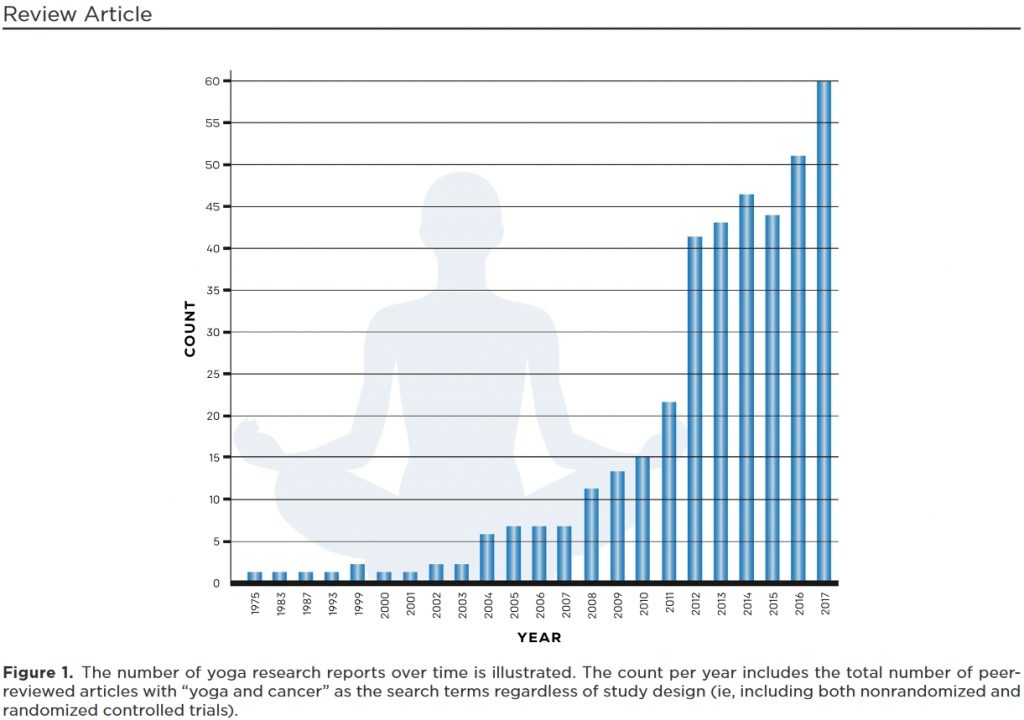Counter cancer with gentle yoga. People suffering from cancer often benefit from additional support during or after their lengthy and difficult medical treatments in order to regain balance with themselves and their lives. And to do something about the “at the mercy” feeling. Illness brings a lot of uncertainty and fear. Cancer patients are often in a tense situation.

A study in 2019 proved that gentle yoga in conjunction with relaxation and meditation techniques can restore a sense of body and well-being to patients. In total, the scientists evaluated 29 randomized controlled studies on the influence of yoga on the well-being of adult cancer patients.
With the right exercise program, disease and therapy-related symptoms can be reduced. Hard times are better accepted and the effects of chemotherapy, radiation and tablet therapies can be reduced.
Source: Overview study on symptom management in cancer (2019)

Yoga improves quality of life with cancer
Yoga has a positive influence on the general quality of life during and after cancer therapy. Above all, the physical, emotional and social well-being increases and is also used for further prevention.
The second area in which there has been clear improvement is so-called fatigue: it is significantly reduced through regular yoga. In addition, yoga improved cognition, lymphedema and vitality. The concentration of various biomarkers for stress and inflammation also decreased.
The randomized controlled trials on symptom management in cancer patients mainly included breast cancer patients. However, study participants with other cancers (e.g. ovarian cancer) also showed positive results for better quality of life, sleep and depression.

Above all, the emotional support, the so-called “Feel Good”, is promoted through gentle yoga exercises with a focus on breathing and flexibility. Yoga not only supports the fight against cancer, it also serves as general prevention against times of crisis. There are no negative effects from yoga.
The conclusion of the scientists: Yoga offers clearly recognizable advantages at low costs — they would therefore encourage cancer patients to participate in appropriate programs.

